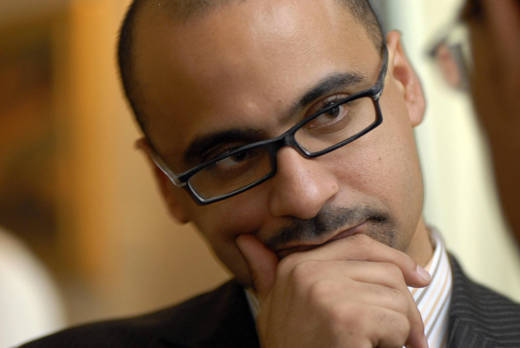Rebecca Fortes was in the University of Michigan’s master’s of fine arts program when she volunteered to moderate a Q&A with Diaz in early-2017.
When Diaz entered the room, he refused to sit or take off his jacket. He told Fortes her introduction was too long and would not let her read it.
She asked him about world building — which he teaches at the Massachusetts Institute of Technology, where he is a professor — and pegged her question to Republican President Donald Trump’s election.
“He literally laughed,” Fortes said. “He was just very dismissive, and I remember being really embarrassed and really hurt.”
A few months before, Diaz had published an essay in the New Yorker expressing the “rejection” and “fear” that came from a Trump victory. A few months later, his essay appeared in an anthology reacting to Trump’s presidency. But when Fortes asked about the subject, she said she was made to feel small.
Soon after, Diaz refused to answer the rest of Fortes’ and her co-moderator’s questions, instead calling on audience members.
She was clear that she was not a victim of sexual violence, but she did feel that she had been a recipient of his “misogynistic behavior.”
On Facebook, author Monica Byrne detailed her encounter with Diaz at a dinner in 2014. She made a comment that Diaz responded was akin to saying “I haven’t been raped, so rape must not exist.”
“His voice had risen to a shout. He literally shouted the word ‘rape’ in my face,” Byrne wrote. “I was speechless and felt sick.”
Author Carmen Maria Machado, who is currently at the Sydney Writers’ Festival with Diaz, shared over Twitter how she was treated when she attended a Q&A with the famed Dominican-American writer.
“When I made the mistake of asking him a question about his protagonist’s unhealthy, pathological relationship with women, he went off for me for 20 minutes,” Machado tweeted. “In the intervening years, I’ve heard easily a dozen stories about (expletive) sexual misconduct on his part.”
In April, Diaz published an essay in the New Yorker about his own experience with rape when he was eight years old and how the trauma manifested later in his personal life.
“I think about the hurt I caused,” he wrote. “I think of all the years and all the life I lost to the hiding and to the fear and to the pain. The mask got more of me than I ever did.”
Diaz won the Pulitzer for The Brief Wondrous Life of Oscar Wao in 2008. He is also known for his books, Drown and This Is How You Lose Her. In his fiction, Diaz often represents unhealthy romantic relationships tinged with abuse and infidelity.
Neither Diaz nor MIT have responded to the AP’s requests for comment.
___
Associated Press reporter Philip Marcelo contributed to this report.


